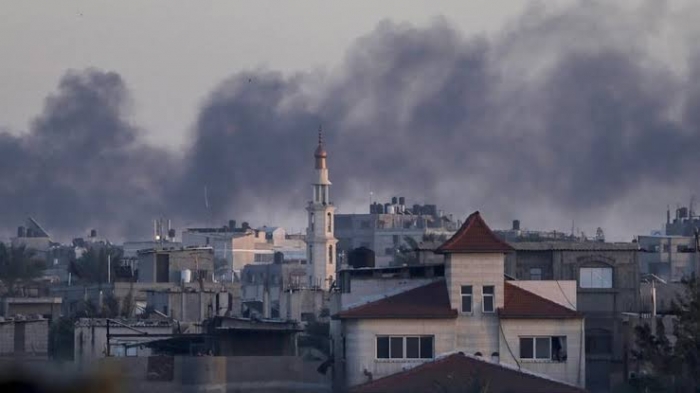Hamas, Israel trade blame for not reaching Gaza ceasefire and hostage deal
Israel and the Islamist group Hamas traded blame on Monday over the lack of progress in reaching a ceasefire and hostage release deal in the Gaza Strip despite international mediation.
Hamas accused Israeli Prime Minister Benjamin Netanyahu of adding new conditions and demands to a U.S.-backed truce proposal, after the latest talks conducted through mediators.
Netanyahu, however, denied making any alterations and said Hamas was the one insisting on numerous changes to the original proposal.
The Iran-backed Palestinian Islamist group said it had received the latest response from Israel, following talks in Rome involving Israel, the United States, Egypt and Qatar.
"It is clear from what the mediators conveyed that Netanyahu has returned to his strategy of procrastination, evasion, and avoiding reaching an agreement by setting new conditions and demands," Hamas said in a statement on Monday.
It accused Netanyahu of retreating from a proposal previously presented by mediators, which it said had already been based on an "Israeli paper".
Netanyahu's office said in response that it was Hamas leadership that was preventing a deal by demanding 29 changes to the proposal.
"Israel is sticking by its principles according to the original proposal - a maximum number of hostages (to be freed) who are still alive, Israeli control of the Philadelphi Corridor (along the Gaza-Egypt border), and preventing the movement of terrorists and weapons to the northern Gaza Strip," it said.
Senior Hamas political official Izzat El-Reshiq later on Monday denied his group had made any new conditions, accusing Netanyahu of stalling.
"The mediators are aware that Hamas showed flexbility and positiveness and paved the path to reaching an agreement and bypassed Israeli obstacles," Reshiq said.
Another Hamas official told Hamas Al-Aqsa television that Netanyahu had raised new "impossible" conditions over the return of displaced Palestinians to their homes, had refused to withdraw from the Rafah crossing and the border line with Egypt, and had rejected freeing long-serving Palestinian prisoners.
Washington, which sponsors the talks, has repeatedly said a deal is close. The latest talks are over a proposal President Joe Biden unveiled in May.
Hamas wants a ceasefire agreement to end the war in Gaza, while Netanyahu says the conflict will stop only once Hamas is defeated. There are also disagreements over how a deal would be implemented.
Mediators Qatar and Egypt, backed by the U.S., have repeatedly said doors to more negotiations remain open, with both Israel and Hamas voicing readiness to pursue them.
Reuters

































































